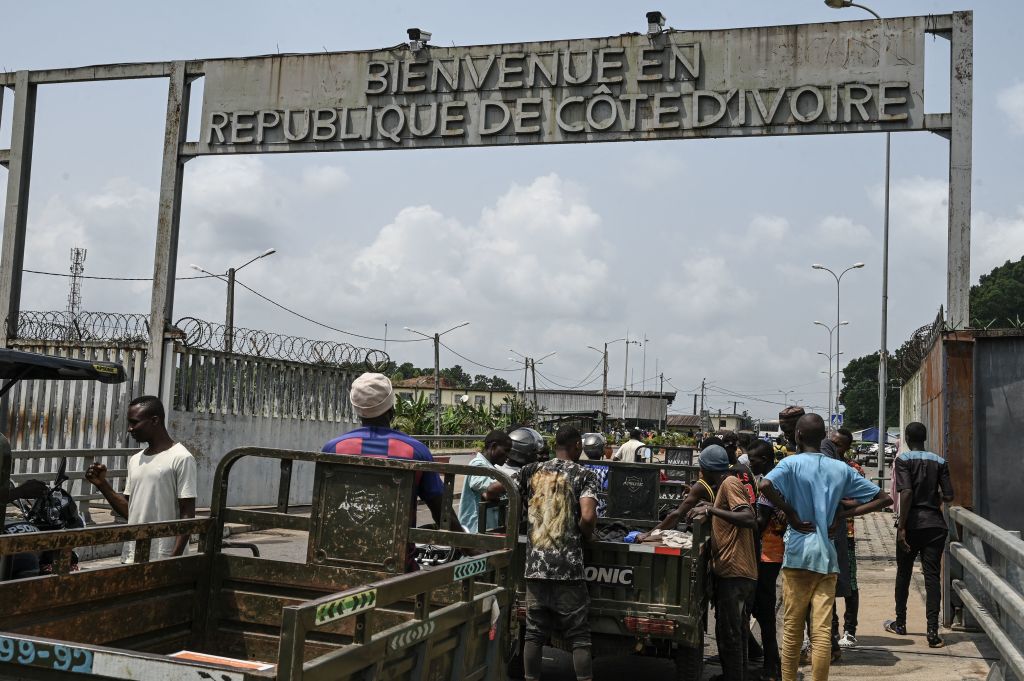ADF STAFF
While violent extremists plague its northern neighbors, Côte d’Ivoire has remained free of terrorist attacks for two years, thanks to a combination of military intervention, enhanced security and greater investment in areas along its borders.
“The goal is to reverse perceptions among border communities that the state has abandoned them,” analyst William Assanvo wrote recently for the Institute for Security Studies (ISS). “Doing so will reduce the risk that they are exploited by insurgents.”
Several Gulf of Guinea countries follow a pattern: The wealth and economic investment is concentrated along the coast while the north tends to be poorer and less developed. That dynamic generates resentment that puts regions at risk of radicalization by the extremist groups that have destabilized neighboring Sahel countries.
Côte d’Ivoire’s most recent terrorist attack came in June 2021, when an improvised explosive device killed three Soldiers in an ambush near the northeastern border community of Tehini near Burkina Faso.
Before that, a 2020 attack on a security post in Kafolo, also near the Burkina Faso border, killed 10 people. That attack followed a joint Burkinabe-Ivorian operation to drive extremists from Burkina Faso’s Comoé National Park on the border with Côte d’Ivoire.
In the years since those attacks, the government of Côte d’Ivoire has boosted the military and security presence in Savanes and Zanzan districts that border Mali and Burkina Faso. Côte d’Ivoire continues to work with its neighbors under the Accra Initiative to detect and disrupt terrorist activity in the region.
In December 2022, the government sentenced 11 Malians to life in prison for their role in the 2016 attack on the coastal resort community of Grand Bassam. That attack — Côte d’Ivoire’s first terrorist event — killed 19 people.
After the Grand Bassam attack, Côte d’Ivoire invested $137.2 million in its fight against terrorism. The funding established programs to equip and train special counterterrorism units, along with other programs to strengthen the government’s ties with residents of northern districts.
Last year, Côte d’Ivoire joined with neighbors in West Africa to create the 10,000-person Multinational Joint Task Force modeled on a similar task force operating in the Lake Chad Basin.
Along with its security aspects, the program invests in education and health care, along with key infrastructure such as roads and drinking water. It also aims to develop apprenticeships and other employment opportunities for nearly 24,000 young people, Touré Mamadou, minister for the promotion of youth, professional integration and civic service, told broadcaster RTI recently.
Prime Minister Patrick Achi launched the program in January 2022 with a visit to Tougbo near the border with Burkina Faso.
The African Development Bank provided $10.53 million in 2022 to help provide electricity to 71,600 households and more than 7,100 business centers in Côte d’Ivoire’s Savanes, Zanzan and Woroba districts. The electrification program is part of a larger effort to reduce poverty in the north and, by extension, the temptation toward radicalization.
“Depending on whether it reduces structural vulnerabilities and fragility in the country’s north, the social program could — by complementing military and security operations — reduce current and future threats,” Assanvo wrote for the ISS.
Ghanaian security expert Fidel Amakye Owusu sees rural electrification and economic investments like those in Côte d’Ivoire as crucial to preventing terrorism in the long term.
While military and security interventions are important short-term solutions, helping people meet their basic needs will go farther toward keeping them out of terrorists’ influence, he told ADF in an interview.
“When a person feels frustrated, he is likely to take a machete and make attacks and blame other people for his own problems,” Owusu said.

